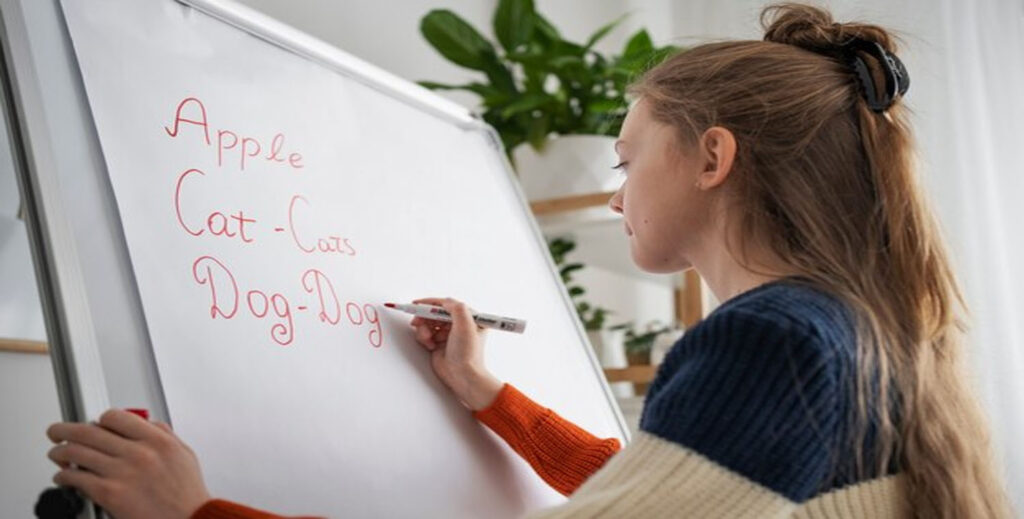Conjugaison Pleuvoir: Understanding the Verb and Its Use in French

The French language is known for its intricate verb conjugation system, with various tenses, moods, and irregularities that can challenge even the most advanced learners. One such verb that plays a significant role in everyday conversation is pleuvoir, meaning “to rain.” Although it seems like a straightforward verb, understanding its conjugation can be tricky due to its irregularity and unique usage in the French language. In this article, we will explore the conjugaison de pleuvoir (conjugation of pleuvoir), its meanings, and its role in the French language.
What Does Pleuvoir Mean?

Before diving into its conjugation, it’s important to understand the meaning of pleuvoir. As mentioned, pleuvoir is a verb that translates to “to rain” in English. It’s an impersonal verb, meaning it is used only in the third-person singular (i.e., it only appears as “il pleut,” which means “it rains”). In French, verbs that describe weather conditions, like neiger (to snow), tonner (to thunder), and pleuvoir, are often impersonal and require the subject “il” (it) as the subject of the sentence, even though no specific person or thing is doing the action.
For example:
- Il pleut – “It rains” or “It is raining.”
- Il a plu hier – “It rained yesterday.”
Although pleuvoir typically refers to rain, it can also be used metaphorically in some contexts, such as in expressions where it implies a flood of something (like money or emotions). However, the most common usage remains related to weather conditions.
The Conjugaison Pleuvoir: Present, Past, and Future Tenses
Like many irregular French verbs, pleuvoir doesn’t follow the typical conjugation patterns of regular -er, -ir, or -re verbs. It only conjugates in the third-person singular form, making it one of the more straightforward verbs in terms of subject-verb agreement. Let’s examine the conjugation of pleuvoir across different tenses.
1. Present Tense (Le Présent)
The present tense of pleuvoir is used when describing an ongoing action or a general statement about the weather in the present moment. The conjugation in the present tense is:
- Il pleut – “It is raining” or “It rains.”
As you can see, the only form used in the present tense is the third-person singular “il pleut.” This is true for both the indicative mood and informal spoken French. The verb pleuvoir doesn’t change depending on the subject, which is typical of impersonal verbs in French.
Example sentences:
- Il pleut souvent en avril. – “It rains often in April.”
- Il pleut des cordes. – “It’s raining cats and dogs” (literally, “it’s raining ropes”).
2. Imperfect Tense (L’Imparfait)
The imperfect tense is used for actions that were happening in the past, for ongoing past situations, or for describing habitual actions. The conjugation of pleuvoir in the imperfect tense is:
- Il pleuvait – “It was raining” or “It used to rain.”
The form “il pleuvait” is used when talking about an action in progress in the past or when describing weather conditions as a habitual occurrence.
Example sentences:
- Quand j’étais enfant, il pleuvait souvent l’été. – “When I was a child, it often rained in the summer.”
- Il pleuvait quand nous sommes partis. – “It was raining when we left.”
3. Past Tense (Le Passé Composé)
The passé composé is used for actions completed in the past. To conjugate pleuvoir in this tense, you use the auxiliary verb avoir with the past participle plu. Since pleuvoir is a weather verb, it’s most commonly used in the past tense to describe what happened at a particular moment in time.
The conjugation is:
- Il a plu – “It rained” or “It has rained.”
Example sentences:
- Il a plu toute la nuit. – “It rained all night.”
- Il a plu hier après-midi. – “It rained yesterday afternoon.”
4. Future Tense (Le Futur Simple)
The future tense of pleuvoir is used to talk about actions or events that will happen in the future. The conjugation of pleuvoir in the future tense is:
- Il pleuvra – “It will rain.”
Example sentences:
- Il pleuvra demain. – “It will rain tomorrow.”
- Il pleuvra toute la semaine. – “It will rain all week.”
5. Conditional Tense (Le Conditionnel)
The conditional tense is used to express an action that would happen under certain conditions. The conjugation of pleuvoir in the conditional tense is:
- Il pleuvrait – “It would rain.”
Example sentences:
- S’il pleuvrait, nous resterions à la maison. – “If it were to rain, we would stay home.”
- Il pleuvrait plus souvent en automne. – “It would rain more often in the fall.”
Using Pleuvoir in Different Contexts
Beyond its simple meaning of “to rain,” the verb pleuvoir can appear in various expressions and figurative contexts, which enrich its use in French.
1. Expressing Intensity of Rain
French speakers often use pleuvoir in expressions that describe the intensity of rain. For example:
- Il pleut des cordes – “It’s raining cats and dogs” (literally “it’s raining ropes”).
- Il pleut à verse – “It’s pouring rain” or “It’s raining heavily.”
These expressions help convey just how much it is raining and are common in colloquial French.
2. Metaphorical Uses of Pleuvoir
In certain contexts, pleuvoir can be used metaphorically to express the abundance or overwhelming presence of something, often non-physical:
- Pleuvoir des compliments – “To shower with compliments” or “To give many compliments.”
- Pleuvoir de l’argent – “To rain money” (i.e., a lot of money is coming in).
These figurative uses of pleuvoir are often used to emphasize abundance or excess.
3. Negative Constructions
As with other French verbs, pleuvoir can also be used in negative constructions. This is common when emphasizing the absence of rain or any other condition:
- Il ne pleut pas – “It is not raining.”
- Il n’a pas plu depuis des jours – “It hasn’t rained in days.”
These phrases highlight the lack of rain and can be used in everyday conversations about the weather.
The Importance of Pleuvoir in French Culture and Conversation
Weather is a central part of conversation in many cultures, and the French are no exception. In France, discussing the weather is often a socially acceptable way to start a conversation, whether it’s with strangers, neighbors, or colleagues. Pleuvoir is often used in these casual exchanges to describe the current or expected weather.
For instance, when you meet someone in the morning, a common way to break the ice is by commenting on the weather:
- Il pleut ce matin, n’est-ce pas? – “It’s raining this morning, isn’t it?”
- Il pleuvra cet après-midi, donc apportez un parapluie! – “It will rain this afternoon, so bring an umbrella!”
Discussing the weather in France is also an indicator of politeness and a way to make small talk, particularly in situations where you may not know what else to say. It’s an easy conversation starter and often an indicator of shared experience.
Conclusion
The conjugaison de pleuvoir is relatively simple in structure but vital in everyday French conversation. As an impersonal verb, it only appears in the third-person singular form, and it is used primarily to describe weather conditions, particularly rain. The conjugation of pleuvoir across different tenses—such as the present tense il pleut, the past tense il a plu, and the future tense il pleuvra—provides a variety of ways to express different shades of meaning.
More Read
866-677-2629 Phone Number: Understanding Its Purpose and How to Use It Effectively






Responses